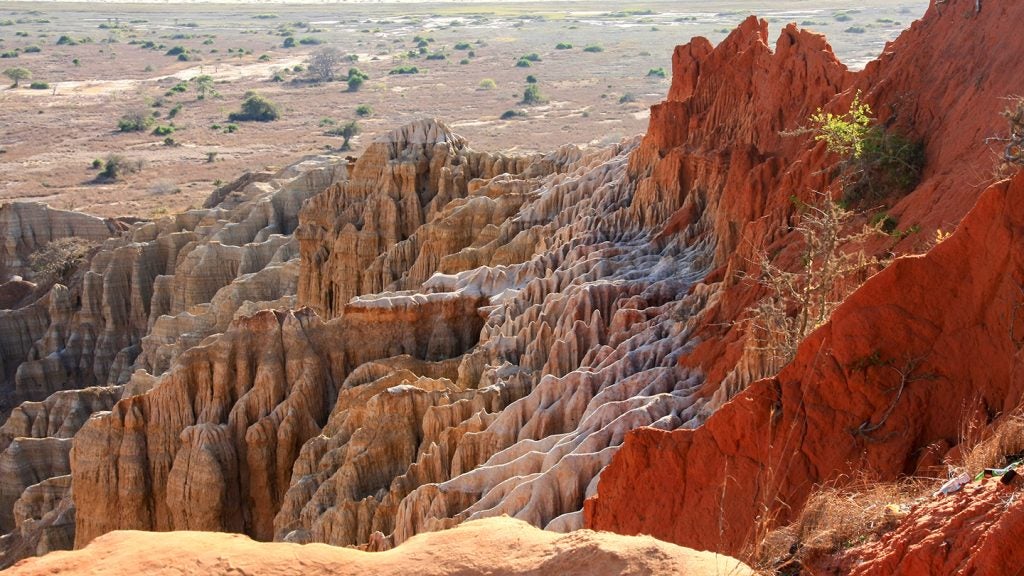

September 15 is a special day in El Salvador. On that day in 1821, after unrest across its Central American territories, the Spanish government ceded its rule and opened the door to a new era of independence for the states it had controlled for almost three centuries, including El Salvador.
This year, the day is set to once again mark a defining point in the country’s independence, when a key hearing in a case that has fired up patriotic passions across the country will be heard. However, it is not a country that is being accused of seeking to undermine its sovereignty but a mining company from Australia that is suing the country for $284 million.
The origins of the dispute go back to 2004 when Canadian firm Pacific Rim, which is now owned by Australian outfit OceanaGold, applied for a permit to start mining gold at the El Dorado mine. Claiming to have been encouraged by the Salvadorian government to carry out exploration, the firm were angered when its permit was denied.
In response, it elected to establish a wholly owned US subsidiary in order to open up a legal route that skirted sovereign Salvadorian law and instead put the power into the hands of three corporate lawyers acting as arbitrators. Through increasingly common Investor-State Dispute Settlement (ISDS) measures included in a trade agreement with the US, Pacific Rim was afforded the right to take its case to International Centre for Settlement of Investment Disputes (ICSID) at the World Bank in Washington D.C.
See Also:
The well intentioned idea being used by miners to strongarm governments
Originally intended as a means to encourage outside investment into developing countries by offering an independent arbitration route, the ISDS route is increasingly being viewed as a means for corporations to recover funds after environmental rules and regulations disrupt their activities.
How well do you really know your competitors?
Access the most comprehensive Company Profiles on the market, powered by GlobalData. Save hours of research. Gain competitive edge.

Thank you!
Your download email will arrive shortly
Not ready to buy yet? Download a free sample
We are confident about the unique quality of our Company Profiles. However, we want you to make the most beneficial decision for your business, so we offer a free sample that you can download by submitting the below form
By GlobalDataTensions over mining operations in Peru have once again flared up.
Luis Parada, a partner at U.S. law firm FoleyHoag and the man acting for El Salvador in the proceedings, believes the measures were well intentioned but that they are now being abused. "The ultimate question in this case," he said, "is whether a foreign investor can force a government to change its laws to please the investor as opposed to the investor complying with the laws they find in the country."
As with many legal instruments, the mere threat or potential of ISDS action has been held up as having far reaching consequences. Documents released by the government of Guatemala confirmed that the potential for a Canadian mining company to take such action if its permit to reopen a gold mine was rejected prompted concern among officials. The company was later granted the permit, though it is not known how big a factor the threat of action was.
José de Echave, a former environment minister of Peru, has publicly claimed that such actions have been used to apply pressure to governments by corporations. "Foreign corporations have used these investor-state dispute settlement (ISDS) powers, both explicitly and behind the scenes, to pressure the Peruvian government to pardon polluters and to strong-arm mining concessions in areas of the country where indigenous communities continue to rise up in opposition to environmentally damaging projects."
As some move to scrap the rules, others seek to secure them
Such incidents prompted Bolivia to cancel all of the trade deals it had agreed that included ISDS measures, while Brazil has always refused to agree to any such measures being included in any agreement. El Salvador, irrespective of the outcome of the Pacific Rim dispute, appears to be moving to make a similar decision. The countries human rights ombudsman is leading a campaign calling on the government to cancel any such agreements and he has generated strong support from the public and Parada.
But some states appear to be questioning the value of the measures, bodies including the World Bank have shown that the economic benefits of such deals benefit the exporter more than the importer. And these deals are becoming more widespread.
Two huge trade agreements currently being negotiated include such measures and if passed would significantly increase the scope for ISDS. The Trans-Pacific Partnership is being negotiated between the U.S., Australia, Brunei, Canada, Chile, Japan, Malaysia, Mexico, New Zealand, Peru, Singapore, and Vietnam, while the Transatlantic Trade and Investment Partnership will bring together the U.S. and European Union member states.
If agreed with the inclusion of ISDS measures, the opportunities for the mining companies to settle any dispute with a government outside the realm of it’s domestic legislation will be spread far and wide. Add to that the increase in global and national legislation to toughen up environmental protection regulations and a growth in such actions appears inevitable.
Come September 15, it won’t just be El Salvador against Pacific Rim, but sovereign laws against corporate interest, and the world’s miners will be watching closely.






